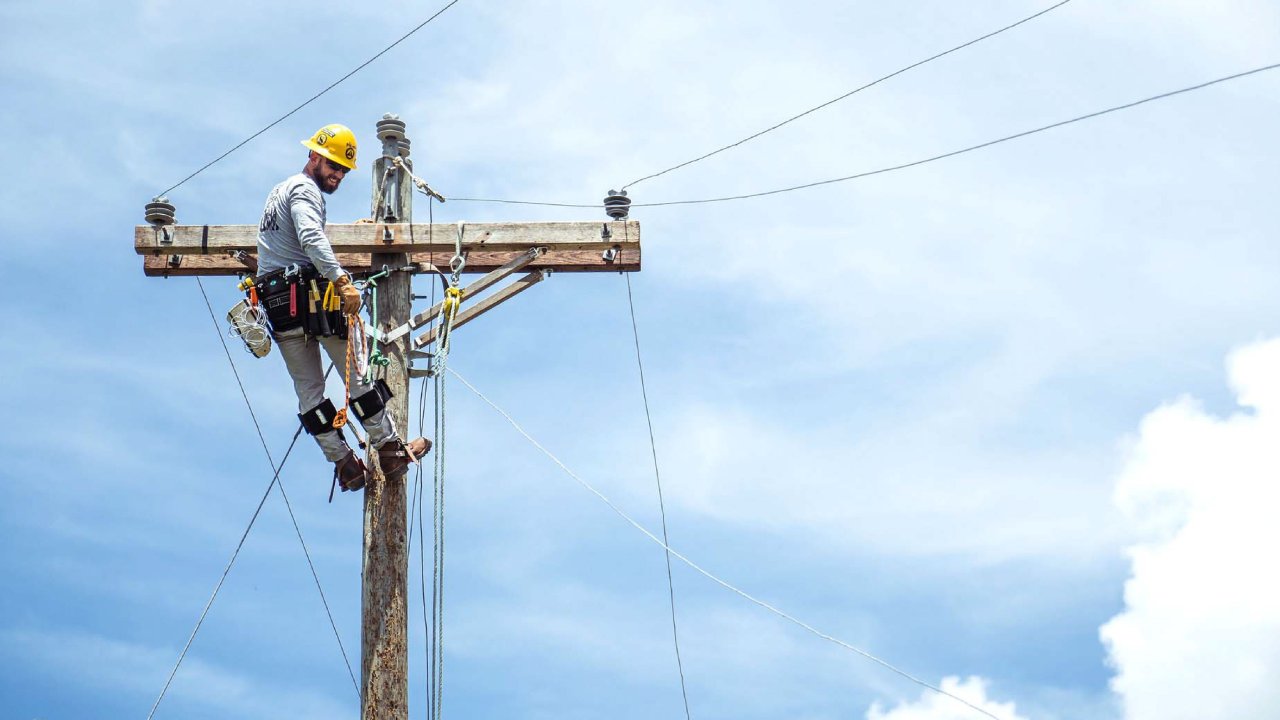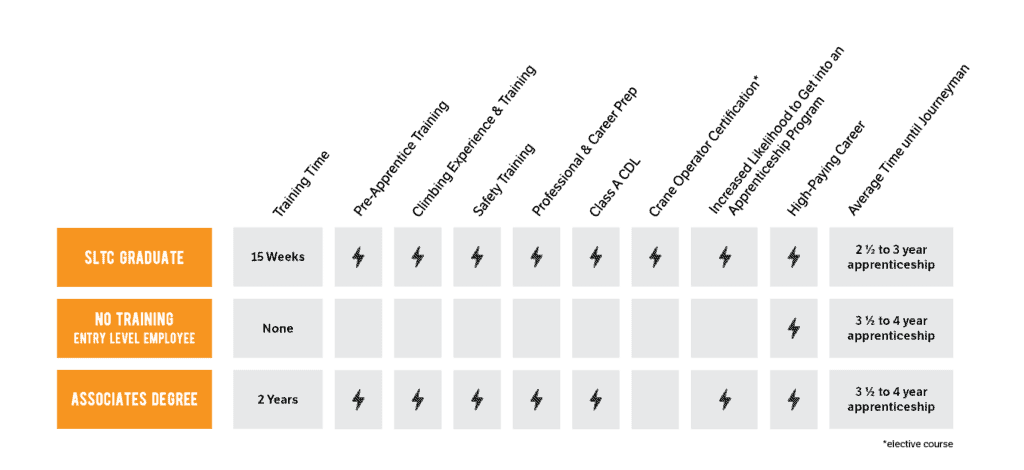
March 10th, 2025

You’ve chosen linework as your future career path. Congratulations, welcome to the electrical utility and communications industry! We can’t promise it will be easy, but we know it will be a rewarding choice. Whether you’re right out of high school and ready to start your career, a college graduate who decided they wanted something different, or even a father who decided he needed a career change to better support his family, we’re glad you’re here. Whatever your situation is, we’re ready to prepare you to take the next step towards becoming a lineman.
But, what is that next step for you? We know there are a lot of paths you can take to kickstart your career in linework, but here’s our recommendations for what will give you the best opportunity for success.
Attend a lineman training center. As a school that specializes in training future linemen, we are a little biased towards this pathway, but we are convinced that this option provides you with the easiest transition into the industry. Whether you choose our Electrical Lineworker Program or our Communications Lineworker Program, you will experience the highest level of classroom instruction and field training by our qualified instructors. With the training you will receive at SLTC, you will already be equipped with the required skill set needed to impress future employers. Depending on your employer, the 15-weeks of training you receive in our Electrical Lineworker Program will allow you to take up to a year off of a 3-4 year apprenticeship program, setting you up for success early in your career.
Receive an entry level position as a groundman or helper and gain valuable work experience. Choosing this pathway will throw you right into the workforce, requiring you to work under a Journeyman Lineman and as part of a line crew. However, getting on as a groundman or a helper does not always guarantee entrance into an apprenticeship program. As an entry level employee, you will be required to go through training that, without prior knowledge and experience, can be quite difficult. Day-to-day, groundmen and helpers are exposed to what linemen do and what is expected of them, but are not fully able to climb poles and work on live wire. This is because they have not yet received full training on how to safely perform the work of a lineman. After 6,000 to 8,000 hours of training (approximately 3 ½ to 4 years) in your apprenticeship program, you will have reached journeyman lineman status and are ready to get to work!1
Earn an associates degree from a community or junior college. As the demand for highly trained individuals in the lineman trade increases, so does the opportunities to receive training. Another option is earning an associates degree from an accredited community or junior college. Programming such as this would take approximately five semesters, or a little over two years, to complete. Depending on the school and state, time may not be taken off your apprenticeship as a result of graduating. With this option as well, your employer may offer tuition reimbursement for employees who choose to earn their associates degree while working full-time. This means you’d need to find a school that offers night classes or an online program.
Before making a decision on what path you should take, be sure to do some research and choose the option that works best for your situation. Financial stability, available time, and physicality are three main factors that should weigh on your decision to enter the industry.

While we hope that either our Electrical or Communications Lineworker Program here at Southeast Lineman Training Center is the path you choose, we understand that it may not be feasible for everyone. However, we do our best to offer financial assistance and guidance to any and all interested applicants. Reach out to an admissions counselor at info@lineworker.com or give us a call at (706) 657-3792.
Southeast Lineman Training Center (SLTC) is the premier training school for lineworker training; consistently producing an elite group of highly trained and certified graduates.